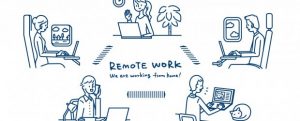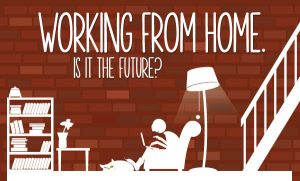 October 2020
October 2020
The future of working from home directly impacts on condominium and high-rise management. More people at home during the day means higher use of water, plus electricity and gas for heating, cooling, lights, cooking and other in-home activities. Delivery systems for utilities have to be adjusted and maintained. There are more deliveries and more waste to dispose of. Common areas, hallways and elevators are more heavily used requiring more maintenance and cleaning.
Prior to COVID most communities had an understanding of their maintenance and repair requirements. With more people at home all of this has changed. Going forward, each community will need to plan for their anticipated needs. The future of work, and working from home, will impact on all building operations.
Immediate-Term
 Many are currently not working or are working from home at least temporarily. How long this state continues depends on government allowing businesses and public services to open, on what terms, and government willingness to pay those not working. During this period working from home will likely remain popular. Communities will be adjusting budgets and condo fees to ensure operations are maintained.
Many are currently not working or are working from home at least temporarily. How long this state continues depends on government allowing businesses and public services to open, on what terms, and government willingness to pay those not working. During this period working from home will likely remain popular. Communities will be adjusting budgets and condo fees to ensure operations are maintained.
Short-Term
 Later in 2020 and through 2021 businesses will reopen as restrictions are relaxed.
Later in 2020 and through 2021 businesses will reopen as restrictions are relaxed.
Working from home, which some suggest is the future of employment, is unlikely to be a permanent state for most. Employers want their employees in the office. It is unlikely that working from home will be realistic for those aspiring to advance and to retain steady employment. If you have career aspirations, you need to be at the office interacting, meeting other people, developing contacts and alliances, and learning.
Business happens in the office for good reason. Those not in the office are unseen, easily forgotten and often expendable. Employers, who prefer to save on rent, want you in the office where management is better able to measure productivity while evaluating people skills, personality, oral skills, team dynamics and other factors important to them. While e-mail, telephone and video communication offer certain benefits and conveniences, they are a limited perspective compared to personal interaction. Most importantly, loyalty is virtually non-existent for those who work at home. Employers can more easily terminate employees they rarely see or barely know. These considerations override the personal interests of employees who may not provide the same level of focus and attention to their work, or company loyalty, when at home.
Communities that have made their management office less accessible may reconsider. A condominium manager in their office all day can also operate remotely or perhaps work less hours for less money since they are “more productive” and no longer need to travel. They fail to develop relationships with the board, residents or those they manage. The value they provide is less visible making them appear expendable. For many reasons this is not a desirable situation and any financial savings are less than the cost of not having someone always present to deal with matters that arise.
Long-Term
 The nature of employment will most likely return to what it was. Most employees will choose to return to work because they require income. Some will retire, fear COVID and be unwilling to return to a working environment, or be unable to find work. Those who have been able to work from home will continue to do so. For most, returning to the office is the most likely practical option.
The nature of employment will most likely return to what it was. Most employees will choose to return to work because they require income. Some will retire, fear COVID and be unwilling to return to a working environment, or be unable to find work. Those who have been able to work from home will continue to do so. For most, returning to the office is the most likely practical option.
Building-use patterns are unlikely to revert back to what they were pre-COVID. Use patterns are likely to have changed as more people remain at home because of unemployment, working from home, fear of COVID or retirement.







